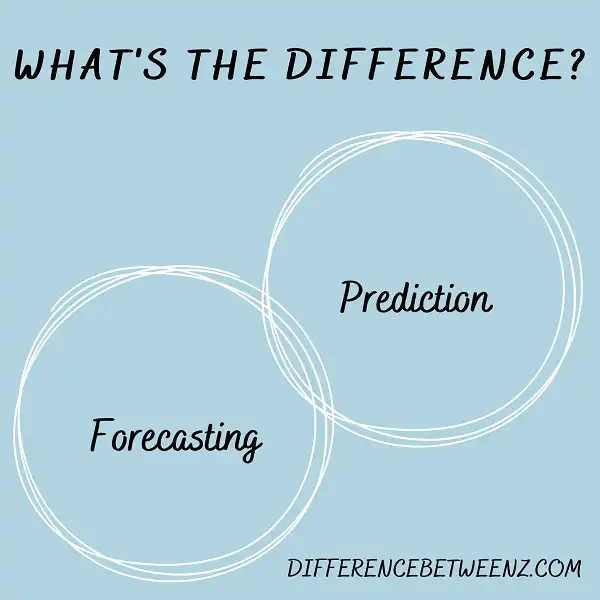Forecasting and prediction are two terms that are often confused with each other. Although both terms are related to predicting the future, there is a big difference between forecasting and prediction. In this blog post, we will explore the difference between forecasting and prediction and explain why it is important to understand the distinction. We will also provide examples of how forecasting and prediction can be used in business settings. By the end of this blog post, you will have a clear understanding of the key differences between forecasting and prediction.
What is Forecasting?
Forecasting is the process of making predictions and estimations about potential future events and outcomes. Forecasting can be used to gain insight into business decisions, investment strategies, and even political developments. Forecasting involves recognizing trends, analyzing data points from past experiences, utilizing research from subject-matter experts, and incorporating a variety of other tools to create an educated anticipation for future events. Forecasting takes insights from the past and uses them to prepare organizations for what lies ahead. With detailed forecasting in place, companies can identify strategic opportunities while avoiding potential risks along the way.
What is Prediction?
Prediction is an educated guess about a future event based on past trends and experiences. Predictions can range from weather forecasts to stock market projections. Prediction can be beneficial by helping people make informed decisions or decisions in their best interest. It can also be used to better understand the impact of certain events or phenomena on other events in the world. Predictions should always be taken with a grain of salt though, as there is no exact science behind it and often unpredictable factors can affect the accuracy of any prediction made.
Difference between Forecasting and Prediction
Forecasting and prediction may seem like similar concepts, but there is an important distinction you should be aware of when considering each of these methods.
- Forecasting involves examining data trends in the past to come up with an educated guess about future events, while prediction goes beyond that and offers more guidance on what the result will look like.
- Forecasting is typically used when the potential outcome is unknown or unpredictable, while predictive models are used when there is greater certainty.
- Forecasting generally uses probability to determine the most likely outcomes, while predictions use mathematical equations to infer a specific outcome based on known facts and situations.
Forecasting tends to focus on historical patterns rather than specific numbers and outcomes, while predictions are often tied more directly to numeric results such as sales projections.
Conclusion
Forecasting is the process of estimating future events, while prediction is making a statement about what will happen in the future. The two terms are often used interchangeably, but there is a subtle difference between them. In order to make accurate forecasts and predictions, you need to understand how your customer’s brain works at different stages in the purchasing process or lead funnel.


